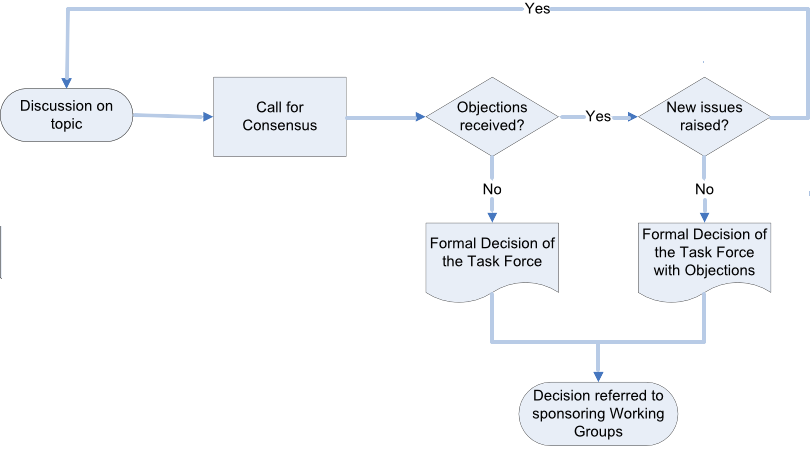
Status: This is a draft proposal to replace the current document, written by chaals for the HTML Accessibility Task Force facilitators and Team.
Revision information: $Id: $
This document explains the decision process of the HTML Accessibility Task Force.
There are often divergent opinions on issues before us. It is important that all views are expressed and considered but it is critical to our functioning that we can come to conclusions.
The Working Groups use their own procedures for how to handle the advice. Formal decisions of the task force are advisory and do not bind the sponsoring Working Groups to a particular course of action.

During discussion on a topic, participants should raise objections liberally to make sure all angles are considered. However, when the facilitators issue a call for objections, objections should only be raised if the individual strongly believes the decision is the wrong one in spite of discussion, and the individual cannot "live with" the decision. Compromise on points that the individual considers suboptimal but can "live with" is an essential part of group decisions that must meet various requirements.
If a participant believes the facilitators have not exercised sound judgment in following this policy, they should express their concern first to a chair of one of the sponsoring Working Groups, escalating if needed to a staff contact of a sponsoring Working Group, and escalating if needed to the W3C Interaction or Accessibility Domain Lead.